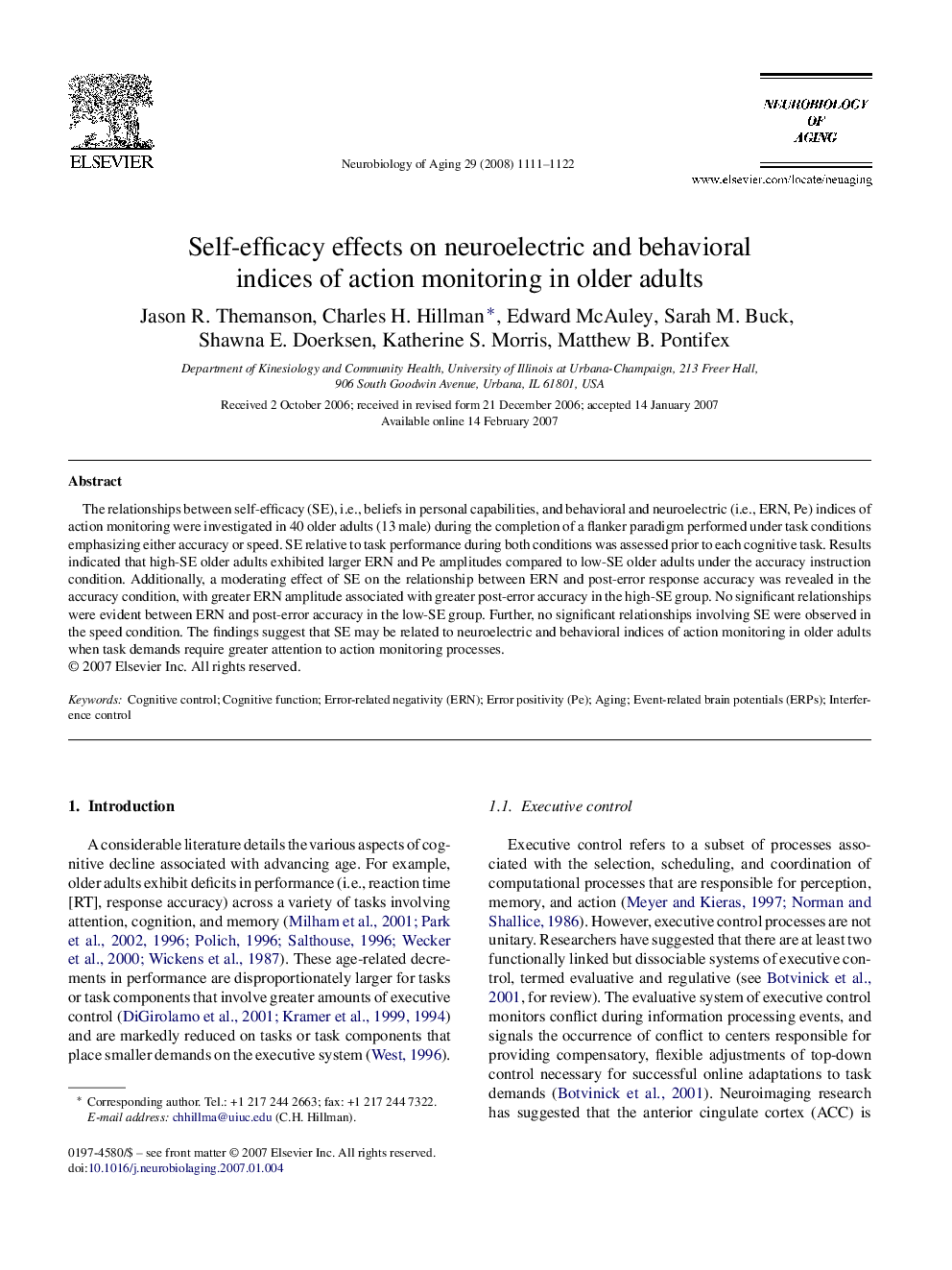| Article ID | Journal | Published Year | Pages | File Type |
|---|---|---|---|---|
| 331247 | Neurobiology of Aging | 2008 | 12 Pages |
The relationships between self-efficacy (SE), i.e., beliefs in personal capabilities, and behavioral and neuroelectric (i.e., ERN, Pe) indices of action monitoring were investigated in 40 older adults (13 male) during the completion of a flanker paradigm performed under task conditions emphasizing either accuracy or speed. SE relative to task performance during both conditions was assessed prior to each cognitive task. Results indicated that high-SE older adults exhibited larger ERN and Pe amplitudes compared to low-SE older adults under the accuracy instruction condition. Additionally, a moderating effect of SE on the relationship between ERN and post-error response accuracy was revealed in the accuracy condition, with greater ERN amplitude associated with greater post-error accuracy in the high-SE group. No significant relationships were evident between ERN and post-error accuracy in the low-SE group. Further, no significant relationships involving SE were observed in the speed condition. The findings suggest that SE may be related to neuroelectric and behavioral indices of action monitoring in older adults when task demands require greater attention to action monitoring processes.
